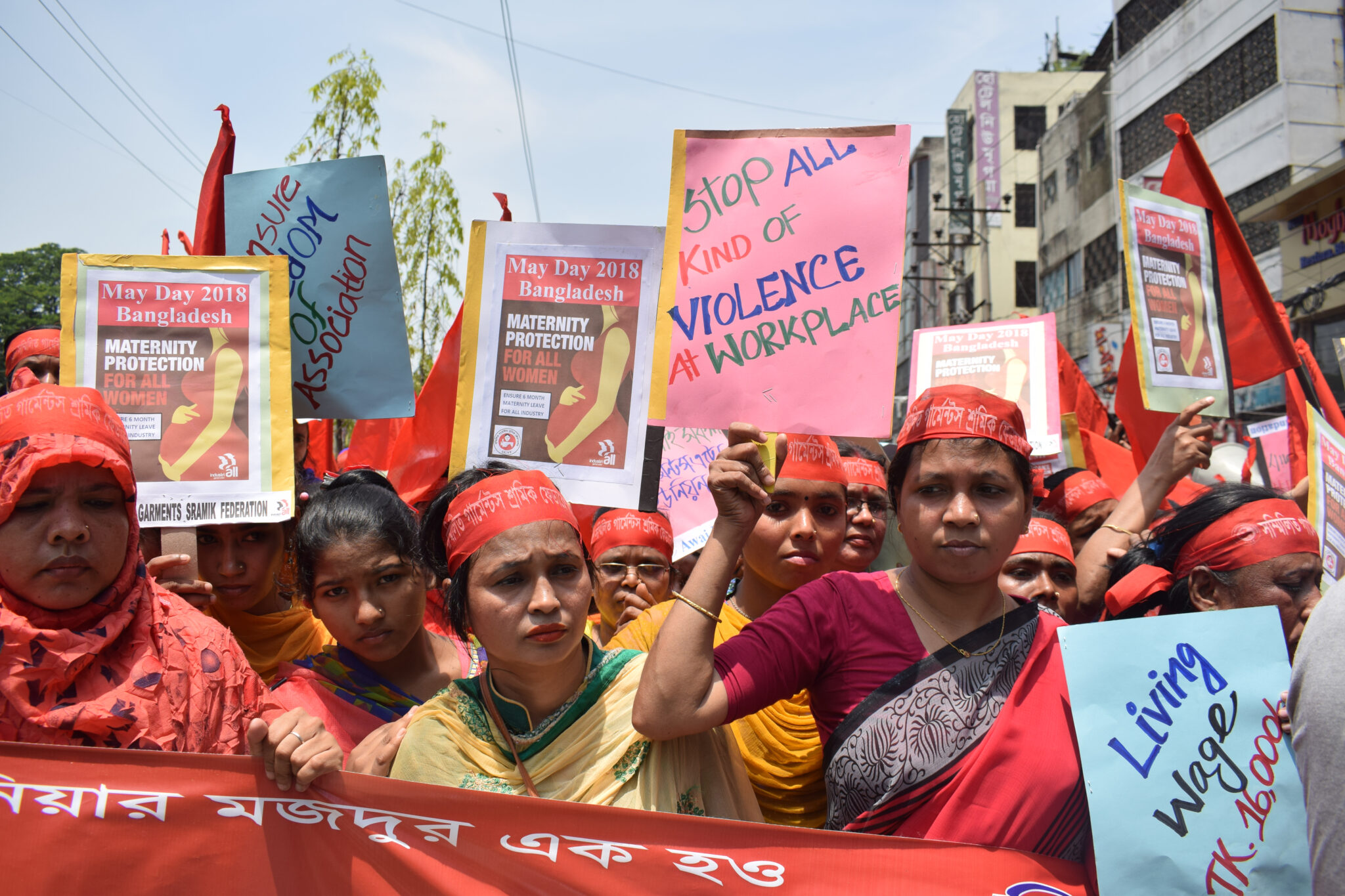
Meredith Gudesblatt is a student at Harvard Law School and a member of the Labor and Employment Lab.
In Today’s News and Commentary, a District Court judge mulls whether the termination of international labor rights grants can be challenged, the Supreme Court adds a case about forced labor at privately run immigration detention centers to its docket, and legislation that provides unemployment benefits for striking workers is on the horizon in multiple states.
On Tuesday, Judge Beryl Howell of the District Court for the District of Columbia heard arguments on motions for summary judgment in American Center for International Labor Solidarity v. Chavez-Deremer about whether labor groups could challenge the cancellation of all ongoing grants and contracts for programs with the Department of Labor’s (DOL) Bureau of International Labor Affairs (ILAB). In March, the DOL cancelled over $500 million in congressionally authorized grants for programs that combat child labor, forced labor and human trafficking, as well as enforce labor standards in more than 40 countries. Whereas DOL Secretary Lori Chavez-DeRemer described the ILAB grants as “American Last programs,” defenders contend these programs are critical tools that help level the playing field for workers in the United States. On April 15, three organizations (the Solidarity Center, Global March Against Child Labour, and the American Institutes for Research) filed a lawsuit challenging DOL’s termination of the grants as a violation of both the Administrative Procedure Act and the Impoundment Act. Government attorneys argued the complaint should be dismissed because the Tucker Act gives the Court of Federal Claims exclusive jurisdiction over contract claims against the government that exceed $10,000 in damages. Judge Howell seemed skeptical of the organizations’ argument, asking “Isn’t that a slippery slope to have any termination of a government contract or grant trigger an APA claim in front of the district court?”
Earlier this month, the Supreme Court agreed to hear The GEO Group, Inc. v. Menocal, a case which could have broad implications for federal contractors seeking immunity from lawsuits related to government functions. In 2014, together with co-counsel, Towards Justice filed a class-action lawsuit against GEO group, alleging that the private prison operator forced immigrant detainees to work for $1 a day in Aurora, Colorado. GEO Group argued that the detainees could not sue them because they run the facility on behalf of the government, which is immune from such lawsuits. Nevertheless, the District Court for the District of Colorado allowed the lawsuit to go forward, and the Court of Appeals for the Tenth Circuit dismissed an appeal, holding that it could not review GEO Group’s immunity claim before trial. The Supreme Court will not review the merits of the underlying case. Instead, it will decide a narrower issue that has resulted in a 5-3 circuit split: whether an order denying a government contractor’s claim of derivative sovereign immunity is immediately appealable under the collateral-order doctrine.
Lastly, before this year, only New York and New Jersey allowed striking workers to receive unemployment insurance benefits. In a February 2025 report, the Economic Policy Institute described this as a “low-cost policy that’s good for workers and state economies.” Connecticut’s state legislature recently passed Senate Bill 8, “An Act Concerning Protections for Workers and Enhancements to Workers’ Rights,” which would grant unemployment benefits for strikers after two weeks out of work. The bill was transmitted to Governor Ned Lamont on Monday of this week, and although Connecticut is one of the most highly unionized states, Lamont has promised to veto it. In May, Washington State signed a new law to extend unemployment benefits to striking workers after 15-21 days, which will go into effect in 2026, though it comes with a 10-year sunset clause. And in Oregon, a compromise bill granting striking workers 10 weeks of unemployment benefits is awaiting the governor’s signature.






Daily News & Commentary
Start your day with our roundup of the latest labor developments. See all
March 2
Block lays off over 4,000 workers; H-1B fee data is revealed.
March 1
The NLRB officially rescinds the Biden-era standard for determining joint-employer status; the DOL proposes a rule that would rescind the Biden-era standard for determining independent contractor status; and Walmart pays $100 million for deceiving delivery drivers regarding wages and tips.
February 27
The Ninth Circuit allows Trump to dismantle certain government unions based on national security concerns; and the DOL set to focus enforcement on firms with “outsized market power.”
February 26
Workplace AI regulations proposed in Michigan; en banc D.C. Circuit hears oral argument in CFPB case; white police officers sue Philadelphia over DEI policy.
February 25
OSHA workplace inspections significantly drop in 2025; the Court denies a petition for certiorari to review a Minnesota law banning mandatory anti-union meetings at work; and the Court declines two petitions to determine whether Air Force service members should receive backpay as a result of religious challenges to the now-revoked COVID-19 vaccine mandate.
February 24
In today’s news and commentary, the NLRB uses the Obama-era Browning-Ferris standard, a fired National Park ranger sues the Department of Interior and the National Park Service, the NLRB closes out Amazon’s labor dispute on Staten Island, and OIRA signals changes to the Biden-era independent contractor rule. The NLRB ruled that Browning-Ferris Industries jointly employed […]